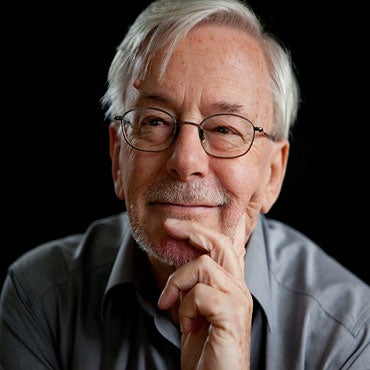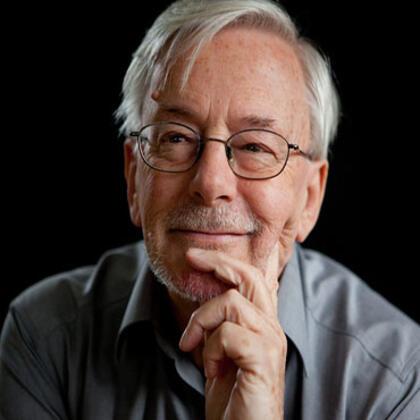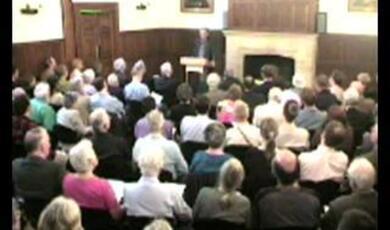The Medieval Synthesis
Share
- Details
- Text
- Audio
- Downloads
- Extra Reading
Religion and Philosophy. Aquinas and Aristotle. The Christain Rationalists - Anselm and Abelard. The cradle of autonomous reason and the rise of science. Was Christian faith the midwife of science?
Nb. We regret to announce that the sound quality of this lecture is of a very poor standard. Although we have done everything in our power to improve it, we realise that many people's enjoyment of this lecture will be hindered.
Download Text
THE MEDIEVAL SYNTHESIS
Professor Keith Ward
The pupil and successor of Plato in Athens was Aristotle (384 - 322), who founded his own philosophical school, the Lyceum. The philosophy of Aristotle dominated the later medieval period in Europe, and was influential on both Islam and Christianity.
Generally speaking, philosophy in the Middle Ages was very much the handmaid of theology. This is so to such an extent that when I took my philosophy degree, no philosopher was mentioned who lived in medieval times, and the history of philosophy went straight from Aristotle to Descartes.
This was a very misleading view of the history of ideas, and depends upon a much more recent opinion that philosophy and theology are wholly distinct from and even opposed to one another. The reason for this is, I suppose, that theology is seen as a confessional discipline. It defends the beliefs of a Church or religious organisation, and so is primarily apologetic. Philosophy, however, is by nature critical of all creeds and organisations, and it may issue arguments in defence of atheism as well as in defence of religious views.
That view may now be held quite widely, but it is not the only possible view, and it is not the one I myself hold. Theology may be seen as the systematic intellectual study of beliefs and practices concerning 'theos', God. These beliefs need not be those of any specific religious organisation. There are Christian theologies, Muslim theologies, Jewish and Hindu theologies. It may seem that Buddhists have been left out, and it does feel odd to speak of Buddhist theology. Surprisingly, perhaps, some Buddhists do so, and that is because the word 'theos' can be taken to refer to 'that which is taken to be ultimately real, or of supreme transcendent value'. Many Buddhists have beliefs about what is ultimately real - the flow of thoughts, feelings, and sensations that go to make up human experience, perhaps - and about what is of supreme transcendent value - Nirvana, a supr-human state of intelligence and bliss.
It may now seem that I am using theology to cover absolutely anything, but that is not so. There are philosophical investigations about the human person, language, the nature of knowledge, and many other topics, which do not directly speak of what, if anything, is ultimately real or of supreme transcendent value. That department of philosophy that deals with these latter questions is often called 'metaphysics', the study of what ultimate sorts of things and values there are.
Am I, then, equating theology and metaphysics? In a sense I am, and I am in very good company. Aristotle's 'Metaphysics' (so called because it is the book of his collected works that comes after the book on physics) could equally well have been called his 'Theology'. It certainly contains important discussions of God and of the ultimate natures of things. It is not, of course, Christian, but Christian theology is only one sub-branch of general theology.
In this sense an atheist could be a theologian, and most atheists I know would be appalled at the prospect. So it must be admitted that those who call themselves theologians usually are concerned with the exposition and analysis of the beliefs of one or more religious organisations, or of their holy texts. They need not agree with those beliefs, but the study of allegedly revealed beliefs is their primary concern.
It does not follow that theology, in this rather narrower sense, has to be apologetic. It need not be committed to defending the beliefs of one particular religious institution. Nor is it the case that all philosophers are critical of every sort of belief. Many philosophers are extremely dogmatic in their beliefs, and are not embarrassed to write apologetics in favour of such beliefs. So a philosopher may well hold religious beliefs, and write apologetics in favour of them.
That does not stop such writings beings properly philosophical. It is quite possible for a metaphysical philosopher to decide that there are good reasons for believing that there is a God. In that case it will be reasonable to think that God may have revealed the divine nature and purpose, and not just left it to humans to discover such things (which are probably hidden in the recesses of the divine mind) for themselves. If one such revelation is judged to be authentic, it will be reasonable to incorporate its content into a general metaphysical system.
The divine revelation will not contradict the metaphysics, presumably, but it may fulfil it and modify it in some respects. In that case, a metaphysician may turn into a systematic theologian, by incorporating into the metaphysical system some data obtained from revelation. The transition may be painless, and it could even be illuminating.
This exactly captures the position of philosophers like Thomas Aquinas, who took the philosophy of Aristotle and modified it in accordance with Christian revelation to form what they believed to be a more adequate philosophical view. It is very wide of the mark to suggest that Anselm and Aquinas were forced to toe some Catholic line, and just used philosophy to back up a set of acceptable beliefs. There is no reason to doubt that they found in the philosophy of Aristotle a compelling metaphysical system, which seemed to lead naturally to Christian belief in a creator God, whose revelation in Christ confirmed and amplified a generally Aristotelian metaphysics.
The turn from Plato to Aristotle that took place in the Western Church in the tenth and eleventh centuries is one that marks a difference in approach between the Eastern Orthodox Churches and the Roman Catholic Church. The Orthodox Churches place much emphasis on the ultimate mystery of the divine 'ousia', on icons as finite images of the infinite God, and on 'theosis' - sharing in the divine nature - as the ultimate goal of human life. So when it comes to the Holy Eucharist, for example, the Orthodox certainly believe that Christ is truly present in the bread and wine, but they usually prefer to think of this as a participation of human life in the divine life of supreme Goodness and Beauty, without going into too many details about the mechanics of the process. The Platonic approach is to accept the participation of the finite in the finite, without specifying any specific conceptual definition of it.
The Catholic Church, however, at the Lateran Council of 1215, defined the doctrine of transubstantiation in Aristotelian terminology, holding that the accidents of bread and wine exist without an underlying substance, while they are the means of conveying the substance of Christ's body and blood to the believer. Both the use of Aristotelian terminology, and the concern to arrive at one correct and precise conceptual definition, are typical of the Catholic approach. We might say, with a measure of over-simplification, that the Orthodox Churches are Platonic, whereas the Catholic Church is an Aristotelian Church.
Theologians like Aquinas make any claim that Christian faith is blind, unquestioning or irrational, absurd. If anything, the Thomist articulation of Christian faith is too rationalistic and too systematic to capture the diversity and mystery of Christian beliefs. What it is based upon is the postulate that the whole cosmos is the creation of a supremely intelligible and rational God, that humans being made in the image of God can follow the workings of the divine mind, at least to a great extent, and so that the cosmos can be understood by the application of reason.
There are mysteries in the Christian faith, of course, though Aquinas gets them down to two, the Trinity and the Incarnation. And even then, it is easy to find rational arguments - in Richard of St. Victor, for example - for why God should be exactly threefold, not more or less. And Anselm, in his great book 'Cur Deus Homo?', does not hesitate to provide reasons for why God had to become incarnate in order to redeem humans. He even calculates the exact number of humans who are going to be saved - it turns out to be the number of fallen Angels whose places in heaven now need to be filled.
Whether or not we now find such arguments compelling, there can be no doubt that they express a determination to find reasons for everything, to leave nothing irrational in God or in creation. In this way, late medieval Christian philosophy laid the foundation for the widespread modern scientific belief that the universe can be understood by human reason, and that it is an obligation to understand the cosmos, as a rational system, as fully as possible. Whatever that is, it is not a blind and non-rational faith.
Moreover, Aquinas was not a slave to a dogmatic and repressive Church. On the contrary, his works were among those condemned by the Bishop of Paris in 1277, Aristotle was considered by some to be a dangerously unorthodox, even possibly materialist, writer, whose views were incompatible with Christianity. It was not long, however, before Aquinas was to become the intellectual touch-stone of Catholic orthodoxy. All religion, like all human thought, contains anti-intellectual and repressive tendencies. But in Catholicism rationalism triumphed, and with it a strong belief in the capacity of human reason to work out or at least to provide the basis of fundamental beliefs about the nature of the cosmos and how humans should act in it.
The problem with taking Aristotle as the guide to a rational metaphysics and theology is that many of his beliefs about the natural world were wrong. He was wrong about the nature of the stars, the sun and moon, about intertia and the force of gravity, about the laws of motion and the atomic structure of matter. Moreover, some accuse him of being an impediment to the development of science for decades, if not for centuries. The seventeenth century scientific writer Francis Bacon said that Aristotle's doctrine of final causes was 'like virgins dedicated to God, barren'. And it is arguable that modern science only really got under way when the search for the 'essential natures' of things, and for the final causes, for the sake of which things exist, was given up.
Modern science is not concerned with essential natures, but tends to see all material things as forming a continuum in which there are no sharp dividing class-divisions. And modern science is not concerned with whatever purposes nature might have, concerning itself solely with the general mathematically describable relationships that obtain between physical entities.
So on the one hand the rediscovery of Aristotle was a major factor in the rise of modern science. It encouraged investigation into the causes of things, to be discovered by close observation and the search for intellectual elegance. On the other hand, Aristotle's general view of nature as a realm in which Forms, or essential natures, were seeking to realise themselves ever more perfectly in matter because it is good that they should do do, stood in opposition to the modern scientific view of nature as a realm in which general laws of nature govern relations between objects, without any reference to purpose or value.
One way of resolving this paradox is to distinguish clearly between Aristotle's theories about physics and his metaphysical views. The Christian development of Aristotle's philosophy by Aquinas is of help here, because it enables natural science to investigate the laws in accordance with which physical entities behave, while holding that the purposes of nature are hidden in the mind of God. The natural sciences have no direct access to that mind, and some form of revelation may be necessary to give a clue as to what God's purposes are. Natural science will show the intelligibility and elegance of the laws of nature. But only philosophy can investigate the question of whether the whole of nature may be created for a purpose, and of whether there may be important aspects of the created order (like conscious thoughts and feelings, for instance) that cannot be fully investigated by the methods of the natural sciences.
Aristotle certainly did think there was a God, and he outlines his view of God in Book 12 of the 'Metaphysics'. There he says, 'God is an eternal and most excellent living being, so that continuous and eternal life and duration belong to it...it is without parts and indivisible, for it is moving things throughout an infinite time...it thinks of what is most divine and most valuable...its life is like the best that we can enjoy...and its contemplation is of all things the most pleasant...it moves things by love (i.e.because it is loved)'.
This idea of God is not based on any revelation, and it is not an ordinary inductive causal inference from observation of what happens in the natural world. It is more like a fundamental postulate, the key integrating idea of a general conceptual scheme for interpreting the world in a consistent, coherent, plausible, fruitful and illuminating way.
Aristotle is thinking of God as an explanation for why the world is as it is. But he is thinking of a special kind of explanation, an explanation that will be absolute, in that it stands in need of no further explanation. An explanation is whatever answers the question 'why?', and if you could think of something the very statement of which gives a wholly satisfactory answer to that question, so that it raised no further questions about why it is the way it is, then you would have an absolute explanation.
When Aquinas claims to set out five ways for demonstrating that God exists, at the beginning of the 'Summa Theologiae', he is expounding Aristotle's arguments in the 'Metaphysics'. The question both of them ask is: 'Is there any conceivable thing or state that could provide an absolute explanation for the existence and nature of the universe?'
Aquinas' first and second 'ways' point out that if anything changes or comes into being, such change or origination demands an explanation in terms of something other than the changed or originated thing. But then that something other will need to be explained as well. So it must be something different in kind from the changed or originated thing. A finally satisfactory explanation of change or of coming-to-be would have to lie in something incapable of change or of coming into being.
This form of argument does not appeal to everyone. Richard Dawkins, who has become a theologian in his old age, sees it as 'arbitrarily conjuring up a terminator' with an unwarranted assumption that God, the terminator, is immune to the regress. But in fact to posit an unchangeable being or state as the explanation of a changing process is exactly what cosmologists do when they seek to explain the 'Big Bang'. They rightly sense that to just have an initial singularity at the origin of the universe is to leave it without final explanation. The search for explanation, which is the ultimate motivation of all science, would stop in a truly arbitrary state, which could not itself be explained.
So cosmologists search for something that could explain the Big Bang. And one favoured explanation at present is the postulation of a set of unchanging quantum laws that govern a set of random quantum fluctuations in a vacuum. I am not here concerned to spell out what this means, and the difficulties of it, but the interesting point is that it is a proper scientific objective to find something that is not either brought into being or changeable - a set of quantum laws - that can explain how the universe originated as it did.
Dawkins remarks that it is 'perniciously misleading' to call this explanation God. But I think he has not got the patience to see what is going on, or how similar it is to proper scientific enquiry, admittedly at the edge of human understanding. What Aquinas is looking for is some ultimate explanation for the universe. Following Aristotle, he claims that he can state some of the characteristics it must have. It must be beyond change and origination. But that is not yet sufficient. The scientific question will be: why are those laws the way they are? And what Aquinas sees is that the only satisfactory answer to the question would be to show that there is simply no alternative. If you understand what they are, you will see that they have to be as they are; they could not be any other way.
Does science come near that? It has made attempts. Steven Weinberg speaks of a 'final theory' as the only consistent mathematical formalism that could give rise to a universe containing intelligent life. The laws are the way they are because if they were not there would be no intelligent life. The laws are necessary to the universe being the way it is.
That is an amazing claim, that if the universe is the way it is, there is just one set of ultimate mathematical laws that could make it so. The claim is amazing because there is probably an infinite number of possible mathematical laws, and so the chances of this set existing is infinitely small. Nevertheless, the infinitely improbable might happen.
Yet even that is not quite good enough. For why should there be intelligent life? Why should there not be different laws that will not give rise to intelligent life? So mathematical physicists (some of them, anyway, and some of the very best of them) suppose that all possible mathematical formalisms exist. Mathematical truths, after all, are necessarily what they are - that is almost a definition of a mathematical truth. And if you had an exhaustive set of mathematical truths, that would be changeless and incapable of being brought into being or destroyed. The truths of mathematics are eternal and necessary.
At this point, the boundary between science and metaphysics gets blurred. The existence of a Platonic mathematical realm is not observationally verifiable or subject to experiment. It is a postulate of what ultimately underlies and justifies the basic axiom of scientific faith - that the cosmos is fully intelligible, and that it can be ultimately explained. In pursuit of this postulate, cosmologists are today theorising that perhaps every mathematically possible universe does exist, generated by the necessary and eternal set of mathematical truths. We happen to exist in this universe, and perhaps, as Weinberg says, it is the only one in which intelligent life actually exists.
But where does God come into this? For Aquinas, as for Aristotle, God comes in because mathematical truths, while they are necessary and eternal, do not just exist on their own. Plato was mistaken if he thought they did. They exist, but not on their own. They exist, as all concepts do, in minds. And the complete and exhaustive set of all possible mathematical truths, as yet not by any means discovered by human mathematicians, exists in a cosmic mind, a cosmic consciousness whose thoughts they are.
God is not the anthropomorphic bearded old man who finds parking-spaces for his favourite humans, as Dawkins seems to think he is. God is the cosmic mind whose content is the complete set of all mathematical truths. And once you have a cosmic mind, Aquinas clearly sees, you have a consciousness that can be aware of, evaluate, and discriminate between, all the possibilities, mathematical and otherwise, that there are.
I sympathise with Richard Dawkins when he expresses a radical distaste for all these abstract and arcane considerations. It is the distaste zoologists might feel for cosmologists, that practical scientists who dabble in test-tubes and rub up against real animals might feel for quantum physicists, who write their crazy thoughts on the backs of envelopes in arcane mathematical symbols. I sympathise; but I cannot agree that all this is mumbo-jumbo or anti-rational. It is the quest of reason pressed to its final limit.
Aquinas, though he lived long before the advent of modern cosmologists, is asking the questions they now ask. What could be an ultimate explanation for the universe? Could it be a cosmic mind, that envisages all mathematically consistent possibilities, that evaluates intelligent life as good and as worth existing, and that brings into being this finite world, that may be the only finite world in which intelligent life can exist?
Aristotle closed the gap that existed in Plato between the world of Forms and the Demiurge that created the world on their pattern. For Aristotle the Forms exist in things; but one of those things is the supreme cosmic mind, which itself patterns the world on them. How does such patterning take place? Because mind not only envisages; it evaluates and enjoys. It identifies certain possible states as good, that is, as desirable and to be enjoyed for their own sake. Aquinas says, following Aristotle, that 'the goodness of a thing consists in its being desirable' (Summa Theologiae, question 5, article 1).
Many quantum physicists accept Hugh Everett's 'many-worlds' theory, according to which all possible states actually exist. What is meant by 'all possible states' is a subject of intense discussion, but one interpretation speaks of all possible mathematically configurable states that are consistent with quantum laws.
Underlying this view is the axiom that mere possibilities, or probabilities (like the probability-wave for an electron, for instance) cannot exist unless they exist in something actual. As Aristotle said, 'Actuality is prior to potentiality'. We can only speak of possibilities existing if they exist in something actual. So Everett thinks of every possibility as actually existing. This in some sense is meant to reduce the otherwise vast improbability of this cosmos existing, out of all the possible alternatives allowed by quantum theory. But another model, and a very natural one, is to think of all possibilities as existing in the mind of God, the cosmic consciousness that underlies all mathematically describable possibilities.
Such a mind would know what states are desirable or undesirable. For example, a cosmos containing intelligent life-forms is desirable, but a cosmos in which such life-forms suffer intensely for no reason and without alleviation is undesirable. It would be a very good reason for making a possible cosmos actual that it realises many desirable states, including many finite instances of conscious understanding, appreciation of beauty, moral and creative effort, friendship and happiness.
For Aquinas, there are two basic sorts of reasons that could explain why a specific universe exists. One is set out in the first three 'ways'. It appeals to necessity, to the fact that there has to be an eternal and changeless being with just the nature it is. There has to be a cosmic mind containing the exhaustive set of all possible states. I have shown that this is not some sort of antiquated and arbitrary idea. It is an idea that appeals to cosmologists, as well as to physicists like Einstein, who wrote, 'The aim of physics is not only to know how nature is and how her transactions are carried through, but also to reach as far as possible the utopian and seemingly arrogant aim of knowing why nature is thus and not otherwise...thereby one experiences, so to speak, that God Himself could not have arranged these connections in any other way' (Contribution to Festchrift for Aunel Stadola, Zurich, 1929).
But the other basic reason for explaining why things are as they are is to show that they are desirable to a rational being. I explain why I eat ice cream quite well when I say that I like it! I explain why people try to get money by showing that money can get them what they desire. For Aquinas, knowledge, power, friendship and happiness, are all objects of rational desire. They are intrinsically good, good in themselves and for their own sake. Thus I can explain why a specific cosmos exists by showing that it realises intrinsically good things or states.
Aquinas' fourth and fifth 'ways' point to such a form of explanation. They are framed in a way that requires a sympathetic understanding of Aristotelian modes of thought, and that are easily parodied. Richard Dawkins amusingly parodies the fourth way, that all perfections (intrinsic goods) must pre-exist 'in a higher manner' in their causes, by remarking that, since all smells must exist in God, God must be 'a pre-eminently peerless stinker'.
Aquinas, however, does not think that God, who is pure Spirit, actually contains any physical properties, even of stinkiness. He thinks that if an intrinsic good (like human consciousness) comes into being, and if it is to be properly explained, it cannot just 'emerge from night', as Aristotle puts it, from pure nothingness. Either it is necessary, or it comes to be because it is envisaged as good, and the process from which it emerges exists in order to realise it.
That 'envisioning of goodness' is not a physical process. It exists in the mind of God. The explanation of a good state is that it is envisaged as a desirable possibility in the cosmic mind, which then seeks to actualise it. It is in that sense that all perfections pre-exist in a higher manner, as ideas in the mind of God. The appeal is to explanation in terms of value and purpose - the universe is brought to be for the sake of the goodness it makes possible.
Dawkins does not seem to accept this as a form of explanation, since he says that 'Ward mistakes what it means to explain something'. But explanation in terms of intrinsic goodness is familiar and perfectly respectable. Aquinas' explanation of the universe appeals to explanations in terms of both necessity and goodness. God is that mind that necessarily conceives all possible states (a sort of many-possible-worlds theory), and sees some of them to be good. Eternal and changeless mind causes temporal and changing things to be, because they express and imitate the perfect goodness of that which necessarily contains all perfections.
This God is simple, in the sense that it is indivisible, without component parts into which it can be decomposed. The model for such simplicity is consciousness, which may have a rich and complex content, but which is indivisibly one, holding all its complex content together in the indissoluble unity of one consciousness. I suppose Dawkins rejects this idea because he does not think that consciousness, even the pure consciousness of cosmic mind, can exist without a complicated physical basis.
That is just a dogma of materialism. Neither Aristotle nor Aquinas were materialists. They both believed that the ultimate reality, in which alone a complete explanation for the universe can be found, must be mind, a mind uniting necessity and goodness in itself. Aquinas' demonstrations of God seek to support that belief. One would hardly expect his thoughts to be acceptable without modification many centuries later. But they are the supreme intellectual achievements of their age. They are being re-visited by state-of-the-art science in cosmology and quantum physics. And even today they provide a wholly plausible exposition of what a wholly intelligible universe would be like. I would be a universe founded on the eternal and changeless reality of perfect mind.
©Professor Keith Ward, Gresham College, 4 December
This event was on Tue, 04 Dec 2007
Support Gresham
Gresham College has offered an outstanding education to the public free of charge for over 400 years. Today, Gresham College plays an important role in fostering a love of learning and a greater understanding of ourselves and the world around us. Your donation will help to widen our reach and to broaden our audience, allowing more people to benefit from a high-quality education from some of the brightest minds.


 Login
Login







